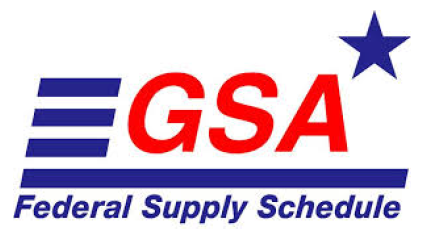The Court of Federal Claims delivered a significant blow to federal contracting by overturning two major government-wide acquisition contracts orchestrated by the General Services Administration (GSA). At the core of this setback lies the GSA’s interpretation of Section 876 of the 2018 Defense Authorization, a decision that has far-reaching consequences for the Polaris small business GWAC and the OASIS+ follow-on multiple award contract for professional services.
The Impact on Polaris and OASIS+
The court’s decision not only compels the GSA to halt its efforts on the Polaris contract but also necessitates substantial revisions to its strategy for OASIS+. Initially, GSA’s approach for OASIS+ omitted price as an evaluation factor in the Request for Proposal (RFP). However, the court’s ruling has prompted a strategic pivot, with GSA now contemplating the inclusion of price as an evaluation factor in the final solicitation for OASIS+.
The crux of the matter, as suggested by the court, lies in recognizing the necessity of including cost as an evaluation factor to allow diverse contracting at the task order level. The GSA aims to incorporate price reasonableness in the final solicitation for OASIS+, with the hopeful release of the updated criteria in the coming month.
Ramifications for Government Contracting
The court’s decision sends shockwaves through the federal contracting landscape, impacting both short-term initiatives and long-term industry efforts to reshape the evaluation and awarding of Government-Wide Acquisition Contracts (GWACs) and multiple award contracts. Emily Murphy, a seasoned expert in government procurement and a former GSA administrator, expressed concerns in an interview with Federal News Network. She highlighted the potential detriment to government contracting, particularly for small businesses and agencies.
Murphy passionately conveyed her pride in implementing Section 876, emphasizing its intended purpose to alleviate burdens on small firms and contracting officers. She criticized the court’s decision, labeling it a “meaningless burden” that fails to deliver the expected results.
Setback for GSA and the Federal Contracting Industry
The court’s ruling creates a substantial setback for the GSA and the federal contracting industry at large. The decision poses a threat to ongoing efforts to reshape the cultural dynamics of federal contracting. It raises concerns about potential repercussions for small businesses and agencies that heavily rely on government contracts for sustenance.
The long-term implications of this decision are yet to be fully understood. The uncertainty looms large over the future landscape of federal contracting, leaving industry stakeholders and participants in a state of anticipation.
GSA’s Interpretation of Section 876 of the 2018 Defense Authorization
Revisiting the Controversial Interpretation
The heart of the matter lies in the GSA’s interpretation of Section 876 of the 2018 Defense Authorization. The court’s ruling deemed this interpretation excessively broad, particularly concerning the Polaris small business GWAC. The fallout from this interpretation extends beyond Polaris, affecting the OASIS+ contract strategy.
GSA’s Strategic Pivot for OASIS+
The original strategy for OASIS+ lacked consideration of price as an evaluation factor in the RFP. However, the court’s decision necessitated a strategic shift, compelling the GSA to reconsider its approach. Recognizing the importance of cost in diverse contracting, the GSA is actively contemplating the inclusion of price reasonableness in the final solicitation for OASIS+.
In conclusion, the court’s overturning of government-wide acquisition contracts has thrown the federal contracting landscape into uncertainty. The GSA’s interpretation of Section 876 has become a focal point, impacting not only immediate contracts like Polaris but also reshaping the strategy for OASIS+. As industry participants await the release of the updated solicitation criteria, the long-term effects on federal contracting, small businesses, and agencies remain a subject of speculation.
Contact Us Today For a FREE Consultation Call!
FAQs: The GSA’s Section 876 Controversy
Q: What led to the court overturning the government-wide acquisition contracts? The court’s decision was rooted in the GSA’s interpretation of Section 876 of the 2018 Defense Authorization, which was deemed overly broad, especially in its application to the Polaris small business GWAC.
Q: How does the court’s decision impact the OASIS+ multiple award contract? The decision forces the GSA to reevaluate and modify its strategy for OASIS+, prompting the inclusion of price as an evaluation factor in the final solicitation.
Q: Why did Emily Murphy express disappointment in the court’s decision? Emily Murphy, a former GSA administrator, believes that the court’s decision undermines the intended benefits of Section 876, particularly for small businesses and contracting officers.
Q: How does the decision affect long-term efforts to change federal contracting dynamics? The decision throws a wrench into GSA and industry efforts to reshape the evaluation and awarding of GWACs and multiple award contracts, impacting the culture of federal contracting.
Q: What is the significance of including price as an evaluation factor in OASIS+? The court suggests that including cost as an evaluation factor is crucial for enabling different types of contracting at the task order level, influencing the GSA’s decision to consider price reasonableness.
Q: What remains uncertain following the court’s decision? The long-term impact of the court’s decision on federal contracting, small businesses, and agencies relying on government contracts is yet to be fully understood.




